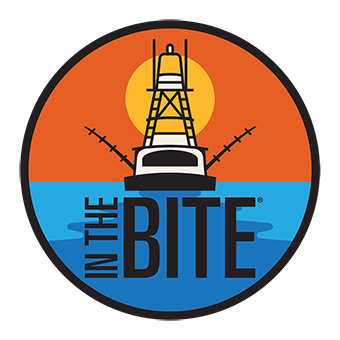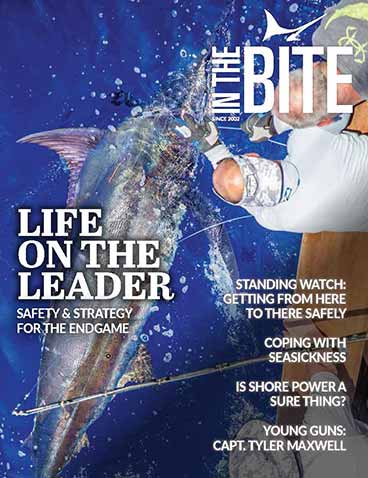Just about everybody has a story about a captain who, despite being able to catch fish like a hawk, is passed up time and again for sportfishing jobs, often for guys who by comparison couldnt catch fish in a barrel. And there are stories of the eccentric gazillionaire owner with the newest, trickest boat, the most incredible travel schedule and the latest in electronics who burns through captains like the Cleveland Browns run through quarterbacks. In the end it comes down to the owner/captain relationship. [% oiopub-banner-24-center %]
A Marriage of Sorts
While there are no nuptials or rings exchanged upon taking a new job, the arrangement between a captain and the owner of a sportfisherman can have more in common with a marriage than with the traditional workplace relationship. Consider the following: In terms of hours, there is nothing 9 to 5 about a professional captain. Each party has quite a bit at stake in the relationship”the owner can easily have several million dollars invested in their floating fish-catching assets (not to mention an annual budget of several hundred thousand dollars more). The captain livelihood depends quite directly on the relationship. The marriage metaphor between captain and owner can be especially true on a travelling boat. On an extended trip, the owner and crew may live together for weeks or even months at a time. During times of extensive travel, the crew may have more interaction with the owner than they do their own families. What starts out as an incredibly spacious and luxuriously appointed sportboat interior can after several months at sea begin to seem like a floating prison inlaid in mahogany.
The Expert Perspective
So what are the secrets to a lasting relationship? Weve spoken with some individuals with a great deal of experience on both sides of the checkbook. While each hails from different backgrounds and operates unique fishing and travel programs, there is still a great deal in common in the ways they approach sportfishing. Their experiences and insight can be useful for anyone on either side of the owner/captain relationship. Buddy Schultz owns the Gotcha, a 65-foot Robin Smith. Over his tenure as boat owner, Schultz has worked with some great bridge talent including Captains Jimmy Kitchell, Cujo Brinkmeyer and Mike Canino. While stationed in Los Sueños, Schultz and Kitchell won the 2011 Los Sueños Signature Series title. In addition to his time fishing in Costa Rica, Schultz boats have fished throughout the Gulf Coast and in the Caribbean, up and down the Pacific coast of Central America and off the coast of Africa. Captain Eddie Wheeler can be found at the helm of the Marlin Darlin, a 62-foot Spencer. He spent his life as a sportfishing professional, and at the age of 43 has never had a job outside the field. Among his list of sportfishing accolades, Wheeler was named InTheBite Captain of the Year in 2004; his name can be found among the ranks of tournament winners as well. So far this year, his schedule has included the Bahamas Billfish Championship, the Bermuda Triple Crown circuit and will culminate in the sailfish series in South Florida. Captain Kevin Dunn has worked for Sam and Edwina Friedman since 2002. As captain, he has overseen the Friedmans fleet which has grown to include a 112-foot yacht, the Cajun Dancer; a 68-foot sportfisherman called the Ragin Cajun; a center console, a bay boat and a flats boat. As Kevin puts it, he got a lot of floating fiberglass to take care of. Dunn and the Friedmans spend about 250 days a year together, whether fishing or cruising. When asked about their years at sea and what is important to maintaining a lasting, functional sportfishing team, it didnt take long for some common themes to emerge.
Building on Common Ground
Kevin Dunn said that from the moment of their first interview there was a connection between him and his perspective bosses. The Friedmans and I had a good fit from the get-go, he says. From the day we met, it was comfortable. Dunn and the Friedmans share similar values, are both from the South and have quite a bit in common. This is an important point. From an owner standpoint, a sportfishing operation is supposed to be fun. A boat can be many things: an outlet for catching fish, winning tournaments, traveling to remote destinations or spending time with family or clients. When it stops being fun, or starts being too difficult to manage, it might be time to change directions or take up golf. By the same token, few sportfishing captains became captains by accident. Nobody just wakes up one day with a Coast Guard certificate and the ability to back a 65-footer into a tight slip at a crowded marina. Most captains become captains because they love fishing and spending time on the ocean. For most, the choice between being a captain and an accountant is an easy one. Being a captain can be fun (an accountant, not so much). A good match in personalities between owner and captain goes a long way to making sure that the boss doesnt turn into a golfer and the captain doesnt take up accounting. Buddy Schultz echoes this sentiment. After a period of time working together, Schultz and his captains become friends. This is easy to do, Buddy says, when youre living and fishing with someone on an extended trip. When properly matched from the beginning, many longtime captain/owner teams form friendships that sometimes last longer than their time working together. To make sure that the prospective captains and owners get along, Eddie Wheeler suggests starting every job with an extended trial period. He recommends taking a few trips together to get a sense for how each other handle a variety of situations. If you take a trip to the Bahamas with a guy and it rains the whole time, you could really like him. The next trip out, it could be great weather and the guy yells at your wife for missing a fish, he says. To avoid getting saddled with a poor arrangement, before making a long-term commitment, start out with a trial. Think of it as dating.
The Importance of Communication
When it comes to all the moving parts of a travelling sportfish operation”boat maintenance, international travel logistics, fishing and travel schedules, port entry and visa requirements, tackle rigging and a thousand other details”it is little wonder why communication ranks as perhaps the most important element to a lasting relationship. According to Wheeler, communication is key. His approach involves making sure that he knows the likes and dislikes of the owner and his guests so that he can plan his trips accordingly. Further, he stresses the importance of being up front and honest in what is happening with the operation. Sneaking around never works, he says. Schultz approach places similar emphasis communication. There are two satellite phones on the Gotcha, he says. One is permanently mounted on the bridge and the other is a handheld in the salon. Any time the boat is in transit, Schultz and his captain put together a plan similar to those used with private jets, which includes scheduled travel times, nightly calls and reports upon arrival. When the boat is in port, there are meetings at least weekly but usually more frequently. A good line of communication is critical, Schultz explains.
Trust, Honesty (and Boat Accounting)
All three pros spoke to the importance of honesty. Even if the relationship between owner and captain is well matched from the beginning, it is important to build trust over time. For Kevin Dunn, this involves a direct approach. I try to be straight forward and honest, no beating around the bush. I like to account for every penny I spend, he reports. To Dunn the relationship is like family, where trust is a critical component. While he and the Friedmans enjoy a great relationship, he offers sage advice on the subject, saying, You have to remember that the captain works for the owners and not the other way around. For me, the best captains are the guys that treat it like it their own boat from an expense perspective, adds Buddy Schultz. Running a boat is expensive, and the best captains are those that treat the boss money like it was their own. When it comes to maintenance or time in the boat yard, little things can add up to big bills in a hurry. Captains who enjoy long careers with the same owners have a knack for keeping an organized, well-maintained boat. Preventative maintenance and keeping the best interests of the operation in mind goes a long way in building trust on both sides of the equation.
Other Things to Consider
The lives and jobs of professional captains and crews must balance time on the boat with time at home. When the owner/captain relationship works well, both sides benefit. Eddie Wheeler speaks to the importance of planning and staying on top of all the captain responsibilities. He will work with the owner to schedule trips ahead of time and will know when guests are coming and going. Before taking personal time, he will take care of all of the maintenance needs for the next trip before leaving. That way, in case the plans change and our guests come in four days early, we arent stuck at the dock doing oil changes. Once a break is scheduled, Wheeler keeps in communication with the owner and his mates to make sure the operation is in good hands while he gone. Incorporating family time is very important, Dunn adds, Sam and Edwina are very good about this. With a schedule that involves around 250 days a year, Dunn and the Friedmans have worked out a good arrangement. Some owners are great about this, others not so much, he says. When it comes to building a captain/owner relationship that lasts, it makes a lot of sense for both sides to consider how to handle time away from the boat.
The Way It Supposed to Work
The unemployed captain who catches fish but cant get along with anyone? The owner of the great boat who cant keep a captain? To hell with those stories. Everybody prefers to hear the one about the captain and owner who work together for twenty years, catching fish, hunting together and growing into old friends. It not an easy story to recreate, but it is nearly impossible without hard work, honesty, communication and compromise.
The Profile of a Successful Captain
Catching fish is important but with the amount of money and resources invested, there is a lot more to the job. The following are traits that most successful, long time captains possess:
- Honesty: Being upfront with owners and fair with mates is important to sustaining relationships and getting things done.
- A Strong Work Ethic: Captains not only put in long hours but they must be knowledgeable about everything from boat systems to accounting procedures. Performing proper maintenance and the ability to diagnose and resolve problems as they occur can be the difference between a great day on the water and a catastrophe.
- Organization: From logbooks and maintenance reports to keeping track of upcoming trips, organization is a trait possessed by nearly all successful captains.
Communication Techniques
All three of our pros listed communication as a critical element to building successful relationships. With this in mind, developing communication skills can be a career booster for most anyone. The resources available online or in the bookstore for communication skills are numerous. While this may not be the first thing that comes to mind when considering a career on the water, adding some communication insight to your reading list will pay dividends in the long run. Do you have any comments or questions for us? We’d love to hear from you.












